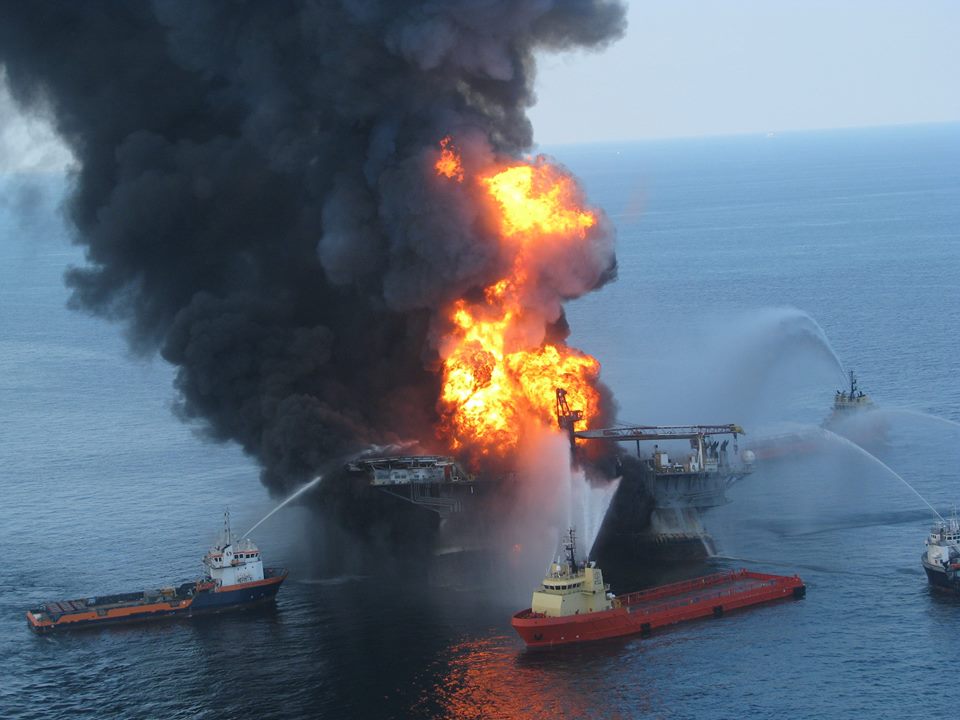Five years ago this week, the Deepwater Horizon oil rig exploded in the Gulf of Mexico killing 11 workers and beginning what would become the worst environmental disaster in U.S. history. Between April 20th and July 15th, the uncapped oil well gushed an estimated five million barrels of crude oil and four million pounds of natural gases, including methane, propane, ethane, and butane, into the Gulf’s waters. An estimated 68,000 square miles of Gulf waters and nearly 500 miles of coastline from Louisiana to Florida were affected by the spill. Tar balls are still washing up on the shores of Alabama and they are likely to continue washing up for years to come across Gulf Coast beaches.
The impacts on wildlife in the Gulf have been extensive. The Gulf of Mexico is home to more than 15,000 species of wildlife, many of which are economically important for commercial and recreational fishing. Two of the Gulf Coast’s main economic drivers are commercial fishing and tourism. Both industries are heavily dependent on healthy beaches and waters to flourish and were significantly damaged when the Macondo well blew. As the environmental damage lingers, so does the negative economic impact, which will be felt for years to come.
Despite the massive oil disaster in in the Gulf, and the ongoing environmental, economic and health crisis Gulf residents are enduring, the Obama administration is now proposing to open the Arctic and Atlantic coasts and their residents to the same risks. The President has included the Atlantic and Arctic Oceans in his administration’s draft five-year plan for offshore drilling. If drilling commences in the Atlantic, East Coast residents could be the next victim of our fossil fuel addiction.
Luckily Senator Menendez of New Jersey along with nine other original cosponsors (Markey, Booker, Sanders, Mikulski, Cardin, Whitehouse, Warren, Blumenthal, and Reed), stood up on Earth Day and introduced the “Clean Ocean and Safe Tourism Anti-Drilling Act” or COAST Act. The COAST Act would ban drilling in the Atlantic outer continental shelf. It is important that we protect our natural resources and do not allow the Atlantic to fall victim to the irresponsible and negligent actions of Big Oil. It is time that we realize that drilling leads to spilling and that the industry’s promises of safety cannot be believed. The oil in the Gulf is still there and it is a constant reminder of the dirty legacy of offshore drilling. It is time to finally invest in the clean and safe energy production of offshore wind and leave our dirty fuels in the ground where they belong.
-- by Natalie Mebane, dirty fuels policy expert, Our Wild America campaign
